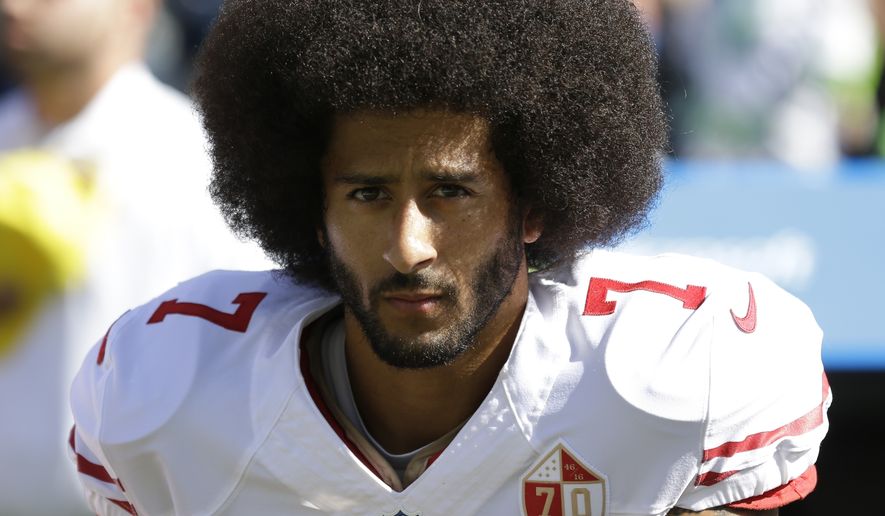Colin Kaepernick’s flag protests have reportedly taken over the Nike board room.
The athletic-apparel giant began shipping out its Air Max 1 USA sneakers to go on sale this week in celebration of the July Fourth holiday, only to ask retailers to return them without explanation, the Wall Street Journal reported Monday.
The shoes had a pattern mimicking the “Betsy Ross” flag of the newly independent colonies.
“The heel of the shoe featured a U.S. flag with 13 white stars in a circle, a design created during the American Revolution and commonly referred to as the Betsy Ross flag,” the Journal wrote.
After having been teased on social media, they are no longer available on Nike’s apps and websites.
Citing “people familiar with the matter,” the Journal reported that the cancellation happened because Kaepernick told Nike that he and others consider the flag an offensive symbol of a slave society.
SEE ALSO: Doug Ducey, Ariz. gov., ends Nike deal after cancellation of ‘Betsy Ross Flag’ sneakers
In 1776, slavery was legally practiced in all the colonies to at least some degree, though several Northern states would abolish it, or put the institution on a path to abolition, during or shortly after the American Revolution.
Nike said the cancellation was because the Betsy Ross flag was an old version of the Stars and Stripes.
“Nike has chosen not to release the Air Max 1 Quick Strike Fourth of July as it featured the old version of the American flag,” a Nike spokeswoman said.
Kaepernick, whom Nike made the face of its brand with its “Just Do It” campaign, declined to comment to the Journal.
The 31-year-old former quarterback for the San Francisco 49ers hasn’t played in the NFL since 2016, the same season he began protesting “The Star-Spangled Banner” by kneeling during the pre-game performances, blaming America for racist cops killing black people in the line of duty.
He declined the 49ers offer of a new contract to test the free-agent market but then went unsigned. He sued the league, accusing its owners of racist collusion and won a settlement, though not an admission of guilt.
The amount of the settlement (less than $10 million, the Journal had reported) also would not be large relative to the actual (plus punitive) damages he would’ve won had he proven racist collusion in violation of player-league agreements.
• Victor Morton can be reached at vmorton@washingtontimes.com.




Please read our comment policy before commenting.